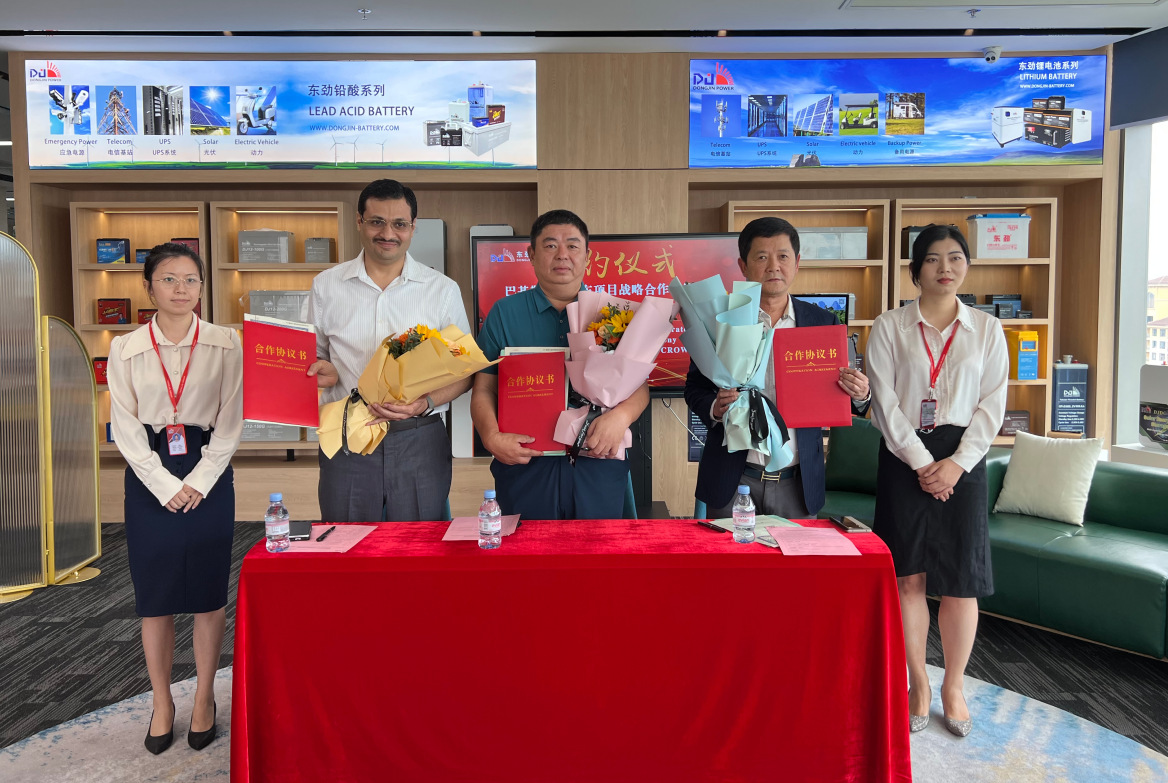Sino-Pak Joint Venture to Inspire Pakistan’s Transportation Sector with Electric Two-Wheelers and Three-Wheelers
KARACHI, Aug. 16 (China Economic Net) - In a development for Pakistan's transportation sector, a joint venture between Chinese and Pakistani companies is set to commence production of electric two-wheelers and three-wheelers, commonly known as rickshaws in the country. The collaboration is expected to bring about positive changes in the local market, reducing carbon emissions and promoting eco-friendly transportation options.
The joint venture was formed in April by Chinese electric vehicle manufacturer Benling Group, Chinese battery manufacturer Dongjin Group and Pakistani auto company Crown Group to leverage their expertise to introduce cutting-edge electric mobility solutions to the Pakistani market.

Pakistan Electric Vehicle project strategic cooperation signing ceremony
Two-wheelers and three-wheelers are widely used in Pakistan for public transportation and are a vital part of the country’s mobility ecosystem. By electrifying this segment, the vehicles to be produced here are expected to address the growing demand for efficient and environmentally friendly transportation options in densely populated urban areas, where traffic congestion and air pollution have become major concerns.
In a recent interview with China Economic Net, Hu Ge, General Manager of Dongjin Pakistan noted that “it is expected that the first batch of materials, batteries and equipment for the production of electric two-wheelers and three-wheelers will arrive in Pakistan after customs clearance next week. We are excited about the launch of the first batch of electric two-wheelers and three-wheelers manufactured by our joint venture late this month or in early September.”
With the production facility located in an industrial zone near Karachi, the joint venture partners are committed to ensuring that the electric vehicles produced in Pakistan meet international quality standards.
Batteries are a key component of electric two-wheelers and three-wheelers, affecting their range, performance, environmental impact and overall usability. One of the most important reasons for holding back the development of electric two-wheelers and three-wheelers in Pakistan is the limited technology of local batteries.
In this regard, the joint venture has specially designed a battery for Pakistan that is higher than the standard of Chinese electric two-wheelers and three-wheelers to cope with Pakistan's actual road conditions and can achieve a two-year service life.
Furthermore, the joint venture aims to create employment opportunities for local communities through the establishment of a supply chain and after-sales service network. Hu said that “in the process of cooperation, we will continue to transfer the manufacturing technology of electric two-wheeled and three-wheeled vehicles to Pakistan, and gradually realize localized production and expand cooperation with auto-parts companies in the park.”
“We believe that as the production facility gears up for operations, Pakistani consumers can look forward to a new era of clean, efficient, and affordable transportation options. More and more Sino-Pak joint ventures are set to play a pivotal role in shaping the future of urban mobility in Pakistan and setting a positive example for sustainable transportation globally,” concluded Hu.




